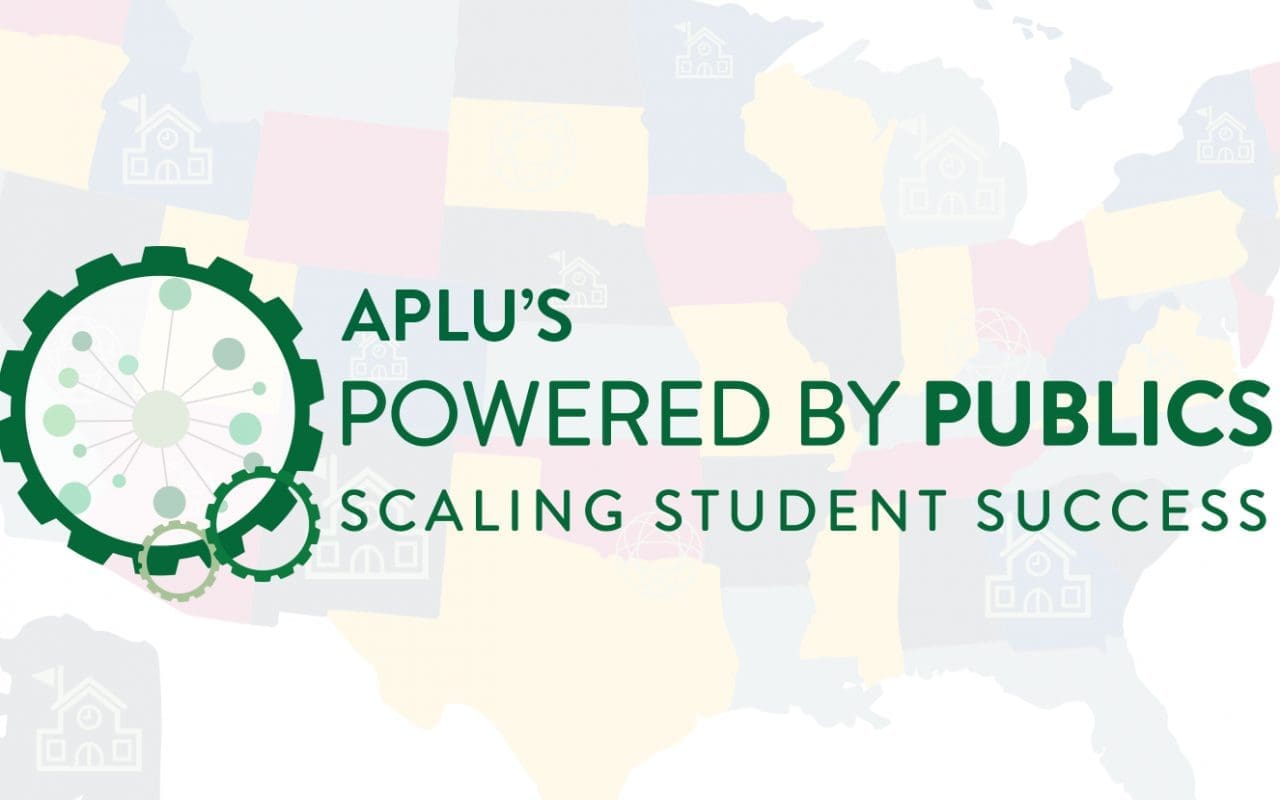
UNC System Participates in Nationwide Student Success Initiative
The UNC System has announced that it is participating in a massive new national effort to increase college access, close achievement gaps, and award hundreds of thousands more degrees by 2025. The “Powered by Publics: Scaling Student Success” initiative represents the largest ever collaborative effort to improve college access, advance equity, and increase student success.
Across the U.S., 130 public universities and systems will concurrently implement innovative and effective practices to advance student success on their campuses. Collectively, the institutions enroll three million students. One million of those students receive Pell Grants. Given the number of students affected, this new initiative will have a significant impact, ensuring that more students, from more diverse backgrounds, will succeed in college.
In addition to pursuing goals of access, equity, and completions, participating institutions have pledged to share data demonstrating their progress to help spur lasting change across the higher education sector.
Participation in this unprecedented effort, organized by the Association of Public and Land-grant Universities (APLU), reflects the UNC System’s ongoing commitment to its Strategic Plan, Higher Expectations. The plan articulates specific goals for getting more students to pursue higher education and ensuring that more students succeed in their studies. By 2021-22, the University aims to significantly increase enrollments of and completions by low-income and rural students, bringing these numbers more in line with the state’s demographics and growth rate.
“Through our Strategic Plan, we’ve shown how 17 diverse institutions can open their doors wider for more students from more diverse backgrounds. The APLU’s joint initiative is a logical next step in scaling up access and success as national priorities,” said UNC System Margaret Spellings. “By 2020, more than 65 percent of jobs will require some level of higher education, yet only 47 percent of adults have a college level credential. We are proud to take a leadership role in the national effort to help more students get enrolled in a university and graduate, fully prepared for success in today’s complex economy.”
Collaborating on a Playbook
By design, the participating institutions represent a wide array of institutions, differing in terms of enrollment, student demographics, regional workforce needs, and competitiveness. The broad diversity of the institutions is intended to help create a playbook of malleable student success reforms that can be adopted and scaled up across a variety of institution types, including those with limited resources.
“Over the past few years, we’ve witnessed a real and growing enthusiasm among public university leaders to advance college completion nationally,” said APLU President Peter McPherson. “We have to seize the moment and mobilize institutions to improve, not just college access, but also equity in student outcomes and the number of students who earn degrees. That’s what Powered by Publics is all about and why we’re thrilled to work with our member institutions toward such an important national goal.”
Powered by Publics has organized participating institutions into 16 clusters. Each cluster will identify a focus area for its work. The cluster organization thus allows for a multi-pronged approach to improving student success. Together, these public universities will work to tear down long-standing barriers, eliminate achievement gaps, reduce costs for students, prepare students to thrive in the 21st century workforce, and collectively increase the number of degrees they award.
The UNC System Office and the six participating constituent institutions (East Carolina University, North Carolina A & T University, NC State, UNC Charlotte, UNC Greensboro, and UNC Wilmington) will work in a South Eastern cluster alongside Clemson University, Florida State University, South Carolina State University, Virginia Polytechnic Institute and State University, and Virginia State University.
Institutions in each cluster will work collaboratively to implement, refine, and scale up practices that have been shown to improve student success. The cluster structure will help universities make more informed choices relevant to their specific institutional contexts. By organizing some clusters according to region, others around enrollment numbers, and still others around urban density, this initiative allows partnering institutions to adapt practices, processes, and policies that address local circumstances.
“Every university is a center of intellectual capital, bringing its own expertise on how to improve outcomes,” said UNC System Senior Vice President for Academic Programs and Instructional Strategy Kimberly van Noort. “When we collaborate and harness all of that creative energy, then it will increase exponentially our potential to radically transform how we serve our students.”
The effort will be overseen by APLU’s Center for Public University Transformation, which the association created this year to help drive transformational change across the public higher education sector. A core value of the center and its participating institutions will be rooted in a commitment to sharing data and innovative, successful practices to help drive progress across the entire sector of public higher education.
Crucially, the lessons learned in this collaborative effort will filter out. The center will regularly disseminate ideas and best practices from the participating institutions to the broader public higher education community. A national advisory council of respected higher education thought leaders will provide a strategic vision and guidance for the center, which will work to build upon and complement existing initiatives around institutional change and student success.